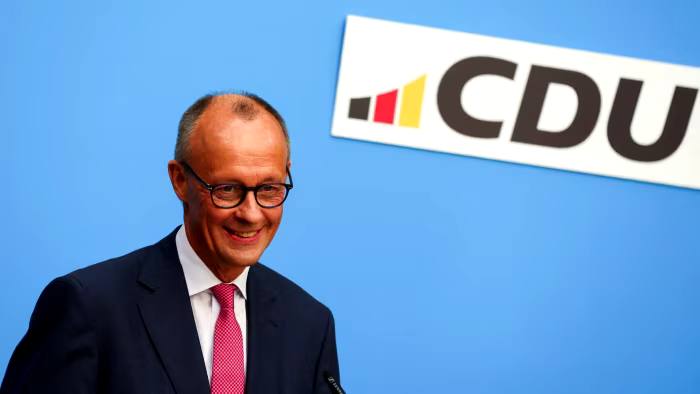How Far To the Right Will the German New Government Go?
Published on January 31, 2025

Earlier this week, on January 29th, the leader of the German Christian Democratic party (CDU) Friedrich Merz, which happen to be frontrunners for the upcoming parliamentary election, broke a long-held post war taboo on collaborating with the far-right. This led to significant public outcry and even a rare appearance from Angela Merkel, an ex-chancellor who largely retired from politics.
The context behind the controversial cooperation was the fact that attempts by CDU to pass tougher immigration legislation could have been jeopardised by the lack of parliamentary support. The hope to save the legislation then lied with Alternative for Deutschland (AfD) - a far-right party, which had for a long time been on the fringes of German politics as other mainstream parties refused any cooperation opportunities with them.
Hence, the public acknowledgment by Merz that ‘it may be that the AfD will for the first time make it possible for a necessary law to be passed. But ladies and gentlemen, we are faced with the choice of continuing to watch helplessly as people in our country are threatened, injured and murdered’ came as a shock to a large part of the German political establishment. This move may well be a part of the bigger strategy by the CDU leader to capture the voters who moved to AfD due to concerns over migration.
However, so far there has been much more outcry than real show of support for Merz’s actions. Since the collaboration took place, thousands of protesters gathered around CDU headquarters to express their disdain for the party, breaking a long-held conviction. The main accusation made at such protests is that Merz’s actions risk to ‘make AfD’s extremism socially acceptable’.
The criticisms of the CDU’s leader have not been limited to civil organisations only. Much of the German political establishment has reacted furiously too. As such, Angela Merkel, in a rare political intervention since stepping down from politics, stressed the importance of adhering to the convention of blocking the far-right from exercising any real political power. In Merkel’s words, ‘I think it is wrong to no longer feel bound to this proposal, thereby allowing a majority with the votes of the AfD in a vote in the German Bundestag for the first time on 29 January 2025’.
It remains to be seen whether Merz’s warmth towards AfD will harm his standing as the favorite for Chancellor. However, it is perhaps useful to reflect on how hard will the CDU’s move towards the right of German politics be, if the party gets elected.
CDU’s manifesto suggests that this move can be expected to be substantial. Apart from a much tougher stance on migration, the party promises a conservative shift in the cultural values and aid for the traditional family structure. While some of the policies will be more difficult to implement, such as a full freeze of the asylum applications at the border, due to the EU rules, the signal coming from the party is quite clear - the conservative shift is to be expected.
If that happens, Germany will be just the latest Western state to cement the seemingly all-encompassing transition to the right. It will also mean that more than half of the G7 states will have right-of-center governments, while the position of center-left leaders in France, Canada and the UK remains extremely fragile.